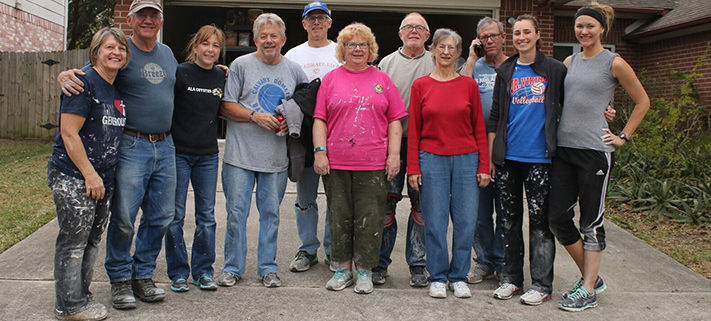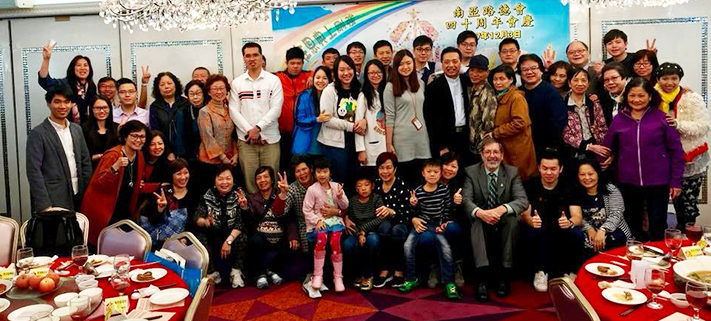When brothers and sisters really care
Mark G. Schroeder
“Am I my brother’s keeper?” Cain said after the Lord asked him where his brother Abel was (Genesis 4:9). Cain’s question was not an honest one. It was a question that was meant to hide from the truth that he had killed his brother. It was also a question that was really a statement of his complete lack of regard for his brother—a selfishness and self-centeredness that had led him to do the unthinkable.
By God’s grace, each of us would answer Cain’s question by saying, “Yes, I am!” As people of God, we recognize that one of our main purposes and responsibilities in life is to act with love, concern, and compassion for those around us. That love goes beyond our immediate family. It extends to the spiritual family of faith of our congregation. It goes even farther, as our love for God is reflected in a desire to help and serve all with whom we interact in our daily lives.
Being our brother’s keeper is not always easy. Sometimes those around us don’t seem to deserve love and support. Sometimes they respond to our efforts with cold indifference or even resentment. Sometimes we become more intent on seeing to our own needs, with little time or desire to see to the needs of others. But as difficult as it might be at times, God calls on us to be our brother’s keeper.
When it comes to helping others, there can be no greater way to help them than by sharing the good news of Jesus. It’s no wonder that the tasks of mission work and evangelism are stressed so often as an important privilege and responsibility that God has given us. We want to reach those who do not know Jesus and are not a part of the church.
But there are other brothers and sisters—inside the church and members of our congregations—who also need our love and encouragement. Every year, roughly 8,000 members of our WELS congregations leave for various reasons. Some of them drift away and simply stop coming to church. Some find themselves away at college and begin to question and reject the biblical truths they learned from childhood. Some fall prey to the attraction of false teaching and join other churches. Still others, caught up in a sinful lifestyle, separate themselves from our congregations and from God’s call to repentance. Should we not be just as concerned about retaining those members as we are about finding new ones?
Parents can do much to keep their teenage children in the church by setting a consistent example of the importance of weekly worship. Congregations can put in place ways to keep in contact with their young people who are away at college. If members of a congregation notice that someone they know has not been in church for some time or is becoming only a sporadic visitor to worship, they can be their brother’s keeper with words of encouragement and invitation. If you know of someone who has been caught up in a sinful lifestyle, God has equipped you with the words to call that person to repentance and to assure him or her that a forgiving God, like the father of the prodigal son, is eager to welcome him or her back.
Being our brother’s keeper is something for all of us to do. If we are faithful in doing that, and as we are filled with genuine care and concern for our brothers and sisters who are straying, God will use us to bring blessings to others that will last not just for this life but also for an eternity.
Mark Schroeder is president of WELS.
SUBMIT YOUR STORY
Do you have a manuscript, idea, or story from your own life you’d like to share for use in Forward in Christ or on wels.net? Use our online form to share it to our editorial office for consideration.
SUBSCRIBE TO FORWARD IN CHRIST
Get inspirational stories, spiritual help, and synod news from Forward in Christ every month. Print and digital subscriptions are available from Northwestern Publishing House.
Author: Mark G. Schroeder
Volume 105, Number 2
Issue: February 2018
Copyrighted by WELS Forward in Christ © 2021
Forward in Christ grants permission for any original article (not a reprint) to be printed for use in a WELS church, school, or organization, provided that it is distributed free and indicate Forward in Christ as the source. Images may not be reproduced except in the context of its article. Contact us






